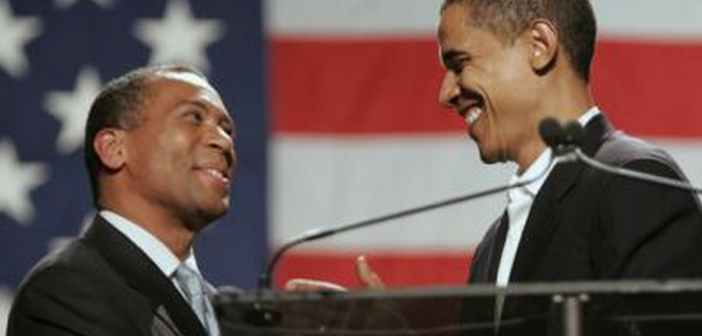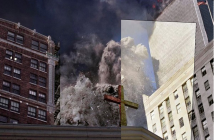Today Governor Patrick's office announced a new Creative Economy Council "tasked with measuring the sector’s contributions to the state, developing a statewide strategy, and promoting responsive public policies and innovative private sector practices."
This seems like a good thing, getting government involved in keeping the Massachusetts creative economy strong. Most artists I know tend to think of themselves as a community rather than a "sector", but if it takes a little government-speak to get money and legal support for the incredibly diverse groups and artists who make up the community, then so be it.
The PR says: "The creative sector is loosely defined as the many interlocking industry sectors that center on creating and promoting intellectual property products, such as visual and performing arts, film, digital media, design, advertising, architecture and tourism. The creative sector strengthens traditional economic sectors, creates new jobs in the technical, service and management areas, and helps to revitalize downtowns and attract new businesses and residents."
As we go into a major national election, this announcement by Governor Patrick may have larger implications. As we've written about here already, Senator Obama has laid out a plan for supporting the creative sector as part of his presidential platform. Senator McCain offers no plan, which has led to some online speculation recently that he would cut arts funding, a claim bolstered by his recent declarations in both presidential debates that he would declare a "spending freeze." If Obama is elected president, organizations like Gov. Patrick's Council will be needed to evaluate and institute programs at the state and local level. If McCain is elected, programs like this will be the some of the only government support for the arts available to many artists.
Overall, the fact that our state government sees the creative sector as an important and driving force in the economy is a good thing. Where this specific council will focus its energies remains to be seen, and what results it produces are unknown. However, it shows that artists have a louder voice in government, and we should exercise it as often as possible.
Here's the full PR:
GOVERNOR PATRICK SIGNS BILL ESTABLISHING CREATIVE ECONOMY COUNCIL
Council will develop statewide strategy and help to promote key industry sectorBOSTON – October 10, 2008 – Recognizing the creative sector as a driving force in economic development, Governor Patrick has signed legislation establishing a Creative Economy Council.
The Creative Economy Council is tasked with measuring the sector’s contributions to the state, developing a statewide strategy, and promoting responsive public policies and innovative private sector practices. The Council will be chaired by Secretary of Housing and Economic Development Daniel O’Connell and will include members of the legislature and representatives from the Massachusetts Cultural Council and other public and private organizations. The legislation was filed by Representative Daniel E. Bosley (D-North Adams).
“A strong creative sector translates directly to a strong economy here in Massachusetts,” said Governor Patrick. “This legislation encourages the kind of collaboration that assures growth and success.”
The creative sector is loosely defined as the many interlocking industry sectors that center on creating and promoting intellectual property products, such as visual and performing arts, film, digital media, design, advertising, architecture and tourism. The creative sector strengthens traditional economic sectors, creates new jobs in the technical, service and management areas, and helps to revitalize downtowns and attract new businesses and residents.
According to a 2007 New England Foundation for the Arts report, Massachusetts has over 14,600 arts and culture-related businesses, 7,600 cultural non-profits, and 109,000 jobs in the cultural workforce, representing 3.3 percent of the state’s overall workforce.
“Governor Patrick and Secretary Daniel O’Connell have been excellent partners in the advancement of this forward thinking bill. The Commonwealth has always relied upon the creativity and innovation of its residents to spur many economic advancements. With this council, we will formalize the conversation about how to truly capitalize on the brilliant and creative minds here in Massachusetts to support our economy,” said Representative Daniel E. Bosley, House Chair of the Joint Committee on Economic Development and Emerging Technologies.
The Patrick Administration has identified strengthening the creative sector as a key economic priority. Earlier this year, the Administration conducted several roundtables to hear directly from businesses, non-profit leaders, local cultural economic development partners, and creative individuals about ways the state can continue to create the conditions for growth in the creative sector.
Images:
Top - Deval Patrick and Barack Obama, found here.
Bottom - John McCain on the stump, by Christopher Sanchez



